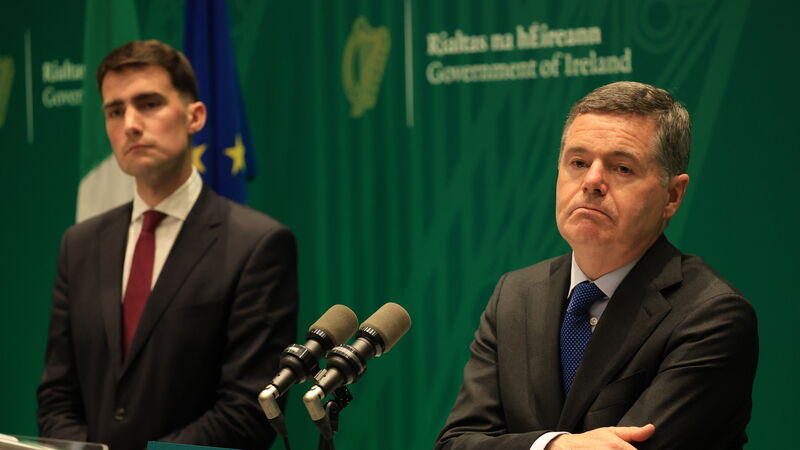Jim Power: Challenges for the Government are intensifying ahead of budget

Ministers Paschal Donohoe and Jack Chambers will unveil details of the budget on October 7. Picture: Stephen Collins /Collins Photos
Now that the National Ploughing Championship is out of the way and the Dáil is back in session, the focus of attention will switch firmly to the budget, although the meaningless presidential election will bubble away in the background.
We tend to say every year that the background to the upcoming budget is uncertain and challenging, but the lead in this time is a bit strange.














